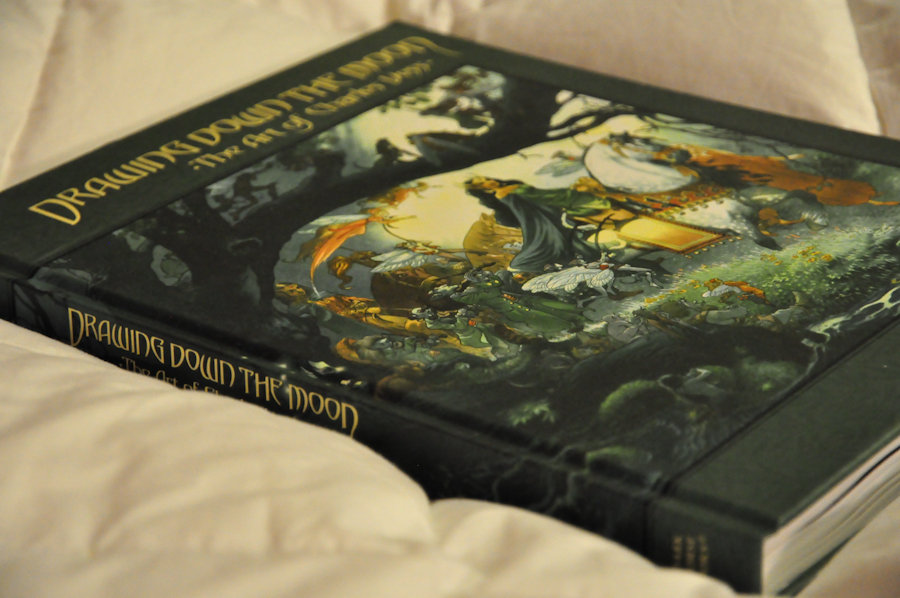As far as I remember, my Grandpa always gave me books. He gave me books for each occasion or for no occasion. It was special enough that he did this for me, as he did a lot of things for me that I remember, but what made it more special was that he signed them to me “Grand Daughter Diana” and “Love Grand Father and Grand Mother” and he always added the day, month, and year on the next line. I still see his handwriting in those books. But I don’t have the books any more so I don’t remember all the book titles, or if he signed them with my name each time…. I only remember that he signed them and dated them. And sadly, I don’t remember when those books left my possession. I must have donated them but I have no memory of deciding that. I only remember deciding to donate the books I bought on my own after that, my mountains and mountains of books. My parents gave me books too. When book faires came to school, my parents gave me a blank check, and I could buy whatever I wanted. I am beyond grateful for my family for giving me books.
Here is my December 25, 2005 LiveJournal entry about Books & Storytelling
This Christmas, I’ve donated 14 boxes of books. You know those boxes that reams of paper come in? I’ve donated 14 of those boxes filled with books to Goodwill. And over the course of ten years, I have donated a box a year. I love books. It isn’t easy for me to give up my books. Only I’m not giving up on books. I just feel that someone else should read my books. I had meant to save them for my children (someday) but that will be a long ways off. And there are children now, and adults, who don’t have so much as one book. I had already donated my clothes and my cherished stuffed animals (I sent them off with a mission to take care of the child they would end up with). But I wanted to give more. This was the last remaining pile of books that I decided to donate. I have about 5 more boxes of books that I absolutely must keep, forever.
My favorite library, Santa Monica Public Library, is reopening on Jan 7th, 2006 (http://www.smpl.org), so if I want to read any book on my book list, I will go check it out from there, or a local library here. I am also getting an iPod this week. I want to try out eBooks and Podcasts, but I mostly want to save a tree or two. I think it’s wonderful and great that authors are able to sell so many books. I have a few favorite authors I must read and I wholeheartedly admire their writing skills. But how many trees does that mean? How much of that is recycled?
But then I remembered how much I love books, how much I love the texture of the paper, and the type styles, and the book covers, and the smells from each book. I remembered this quote from one of my favorite shows Buffy, and how Giles the librarian said it best:
Giles: [ruminating on why books are better than computers] Smell is the most powerful trigger to the memory there is. A certain flower or a whiff of smoke can bring up experiences long forgotten. Books smell… musty and rich. The knowledge gained from a computer is… it has no texture, no context. It’s there and then it’s gone. If it’s to last, then the getting of knowledge should be tangible. It should be, um… smelly.
And I am torn. Between holding & reading a good book or reading on my computer screen/listening to someone else (if not the author) tell me the story on my iPod.
Yet, in one of my favorite illustrated Sandman chapters by Neil Gaiman (“Tales in the Sand” in the prologue to the Doll’s House, http://lubakmetyk.infinology.net/others/sirocco/wtale.txt), the story begins with someone else telling the story. They are sitting around the fire and someone is telling a story. And really, this is how books first began isn’t it; with someone telling a story. It is the art of story telling. Whether in a book, or an eBook, or a podcast, we are all telling a story. It transcends cultures and generations.
The art of story telling… that is what I love the most.
– dee
(http://42explore.com/story.htm)
Storytelling is one of the earliest forms of folkart. Storytelling probably first consisted of simple chants that praised the dawn, expressed the joy of being alive, and were used to ease the drudgery and boredom of laborious tasks. Later the storyteller became the community entertainer by combining their stories with poetry, music, and dance. The storyteller also evolved into the group historian. This was the beginning of professional storytelling.
Storytelling during the Middle Ages was expanded into the art of the traveling troubadour, who journeyed across the land. They were welcomed in castle, court, and market place. They gathered the news, conveyed the best tales, and were expected to know the favorites in each region. The invention of moveable type and the development of the print publishing business led to reading replacing listening, and the decline of storytelling.
In recent decades, there has been a renewed interest in the art of storytelling. Professional storytellers tour the United States and Canada. Likewise storytelling conferences and festivals abound and attract a wide audience. In formal storytelling today, the teller prepares a story to present to their listeners. Some storytellers tell stories from their own imagination. Other stories have been gathered, sometimes adapted from books and other storytellers. Folklore stories such as myths, epics, legends, and fables continue to be favorites.

